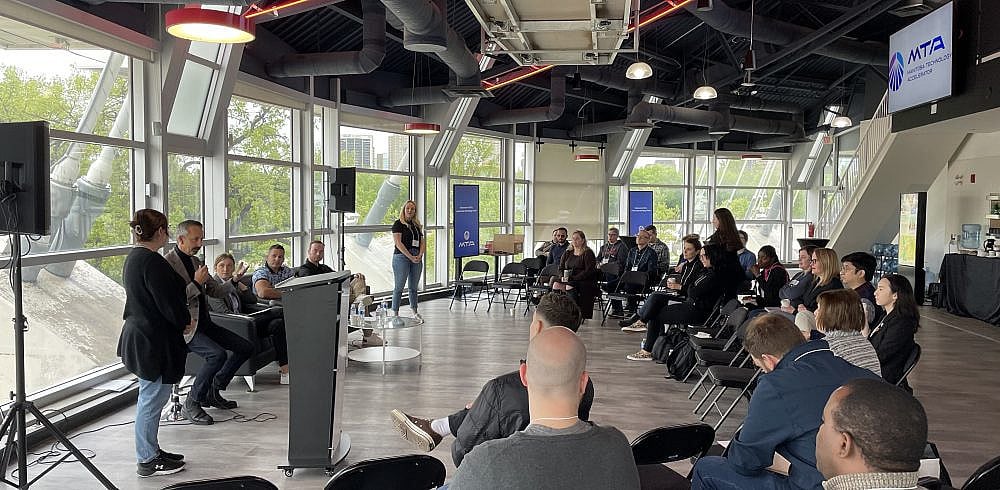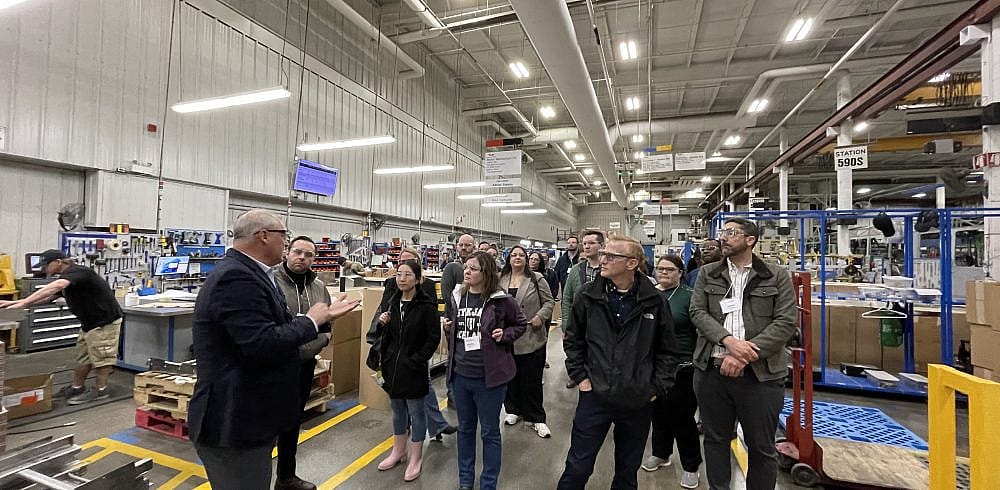 Post contributed by Sheena Pitura-Greaves, Commercial Director at IN10T
Post contributed by Sheena Pitura-Greaves, Commercial Director at IN10T
When the topic was announced for the most recent Leadership Winnipeg session as “Sustainability,” I took pause. Working in the agriculture industry for much of my career, I sometimes find the phrase problematic, when it is used to contrast today’s agriculture systems. Google the phrase sustainable agriculture and there are all kinds of topics like “Sustainable vs. Conventional Agriculture” or “Sustainable Agriculture vs. Industrial Agriculture.” It paints the picture that farming practices today are completely unsustainable, where the truth is not so simple.
According to UC Davis, the definition of sustainability in agriculture is to meet society’s food and textile needs in the present, without compromising the ability of future generations to meet their own needs. It needs to incorporate three main objectives – a healthy environment, economic profitability and social and economic equity. And everyone in the supply chain has a part to play.
Unfortunately, too often we see proponents of sustainability encouraging a return to traditional farming methods. This is a romantic ideal that doesn’t support the economic, social, and in most cases the environmental sustainability of agriculture. In the 1960s, an average farmer fed just 26 people. Today the average farmer feeds 155 people. Today the majority of farms in Canada employ zero-till, a sustainable practice that reduces soil erosion. This practice was non-existent during the dust bowl of the 1930s, to devastating effect.
All of this is not to say agriculture doesn’t need to incorporate greater principles of sustainability into its practices, especially in the area of environment. But rather than turn back the clock, I believe we need to look to technology and innovation to strengthen all three legs of the sustainability stool.
New innovations in biological and microbial fertilizers, precision agronomy practices, plant gene editing, nutritional supplements to reduce methane emissions, or even masks for cows (really, look it up!), can all contribute to environmental sustainability in our industry. New research and innovations are being developed every day!
I saw a great example of this in our tour of The Forks and talking about their compost program. The technology they use to process the waste from The Common is a Manitoba invention, originally developed to process animal carcasses, but now being put to a new and innovative use. The BIOvator was first introduced to the market in 2004 as a cost effective and user-friendly way to manage livestock mortality. Today, after nearly two decades of further development, it is being used in the agriculture, municipal and industrial markets to handle organic wastes of all kind.
A great story of Manitoba-made sustainability!




